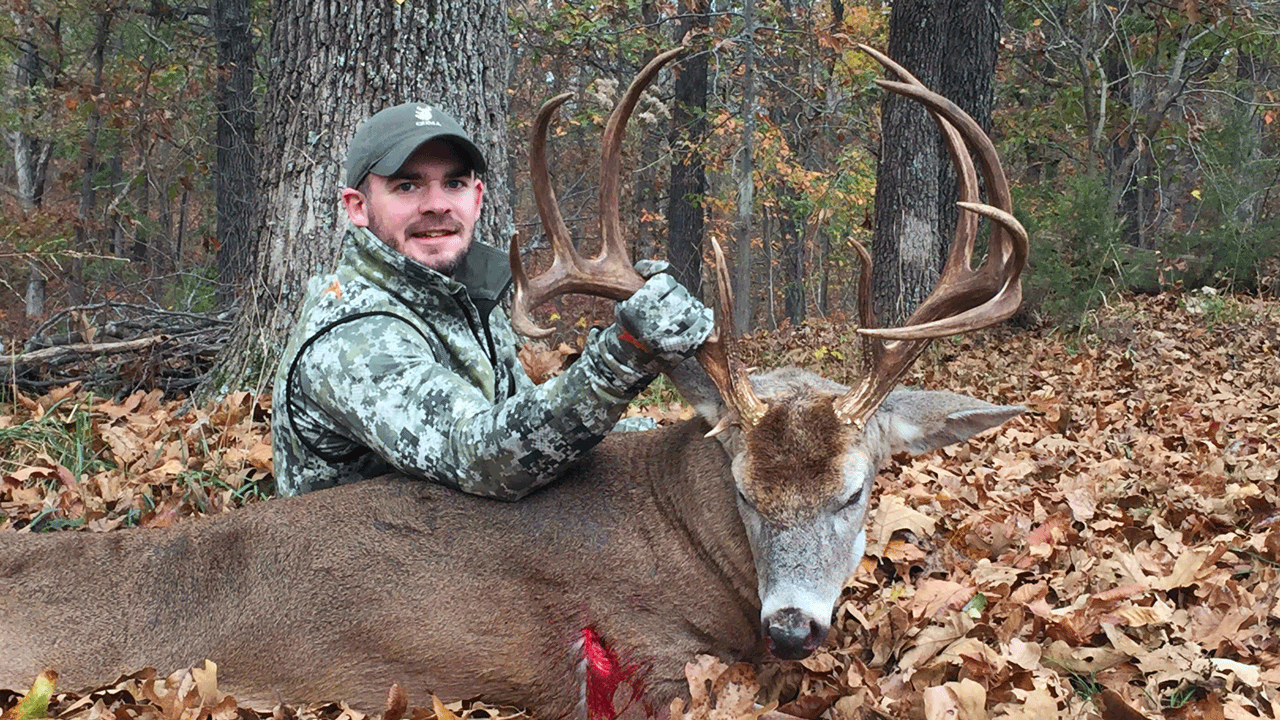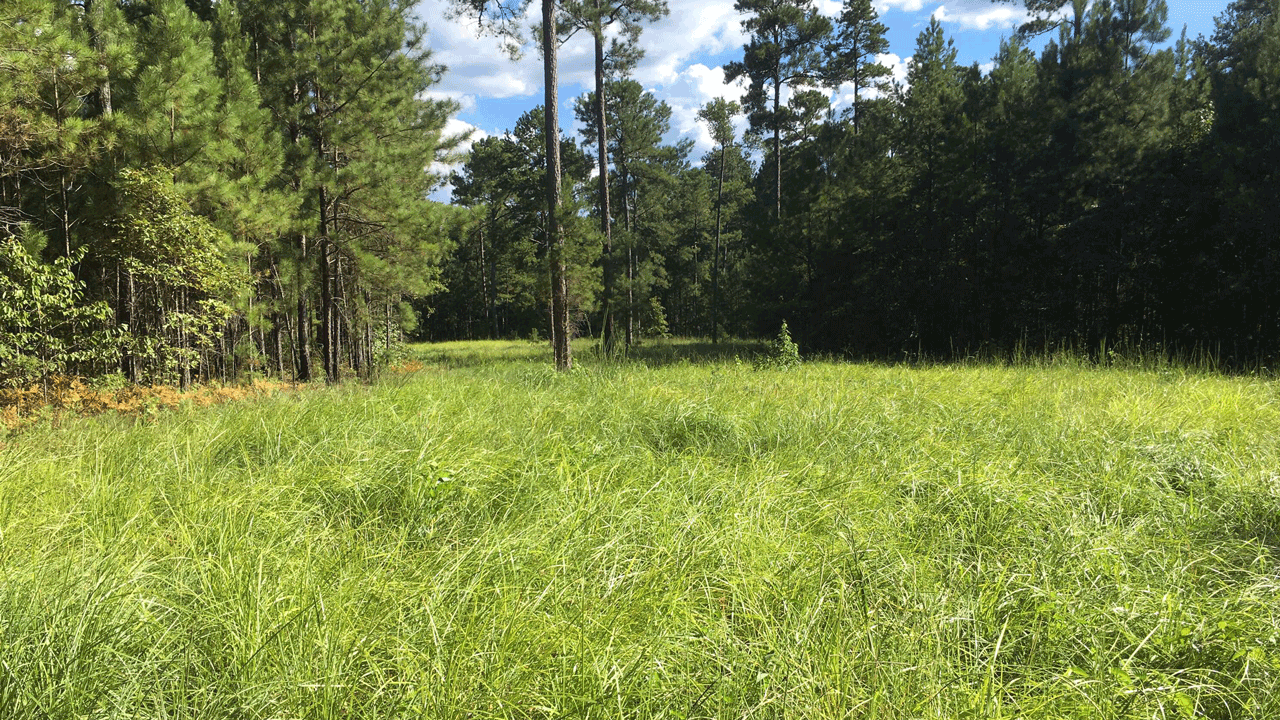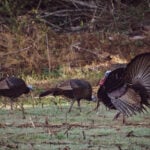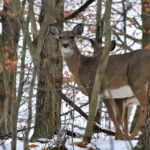Finding good private land to deer hunt has never been more difficult than it is today. Many of you, like myself, who have been hunting for decades probably still remember a time when knocking on a few doors would gain you access to a new piece of hunting land. Having to pay money for that access was unheard of. Sadly, times have changed. On average, it takes a lot more knocks these days to find a new place to hunt, if you can find one at all. And if you do, it’s likely that money will need to change hands.
Public lands are abundant in some areas, but present a whole other set of challenges when it comes to deer hunting. Many times these public lands only offer limited deer hunting opportunities. In some cases, overcrowding can be an issue, and you never really know what kind of people you’re sharing the woods with. That’s not to say that good public-land hunting can’t be found. But even with good public land, there is no opportunity to truly manage the land by improving habitat, planting food plots, or protecting young bucks. You’ll always be at the mercy of the agency managing the property and the hunters you share that property with.

Some of the best deer hunting you’ll ever find will be on small acreage, but you better know how to overcome the common failures.
The logical solution for the diehard deer hunter is to invest in a piece of property of your own — one you can manage to your own personal desires and expectations. Of course, for most Americans, purchasing a large tract of land just to hunt deer is not a realistic option. Even for those who could handle the monthly payment, the higher down payment required on raw land is too steep for many would-be landowners to overcome. That is why deer hunting small acreage and properties has become so appealing. With guys spending $40,000-plus on a truck these days — not to mention the boats, UTVs and other toys — it is certainly feasible for the average hunter to purchase a small tract of land, if they are willing to sacrifice a little in other areas of their life.
Owning and deer hunting small acreage certainly has its advantages. First off, it’s your property, so you get the benefit of managing it just the way you want. You have complete control over the habitat, hunting pressure, as well as what gets harvested on that property. A small property is also easier to learn and scout. You’ll know every inch of the property in no time, and with a few trail-cameras running, you can get a good feel for what deer are there, when they are there, and how they are entering and exiting the property.
Managing a small property is also much more cost effective than trying to manage a large one. You can get by with less and smaller equipment. Instead of a big tractor and expensive implements, you can accomplish a lot with an ATV, small disk and sprayer. You may even be able to get by with garden tools such as a tiller, weadeater, chainsaw and hand sprayer. Your seed, lime and fertilizer needs will be much less than if you were managing hundreds of acres, and you can much more readily manage every single acre to be beneficial to the wildlife that lives there.

Deer hunting small acreage is all about having the right small acreage.
Deer hunting small acreage will come with its own fair share of difficulties and challenges. They’ll make you feel like a failure. The key is to overcoming these issues. Let’s look at four of the most common.
Challenge #1 – You can’t hold deer on a small property
Short of installing a high fence, it is unrealistic to think you can hold deer on a small hunting property. The average home range of a whitetail is approximately one square mile, or 640 acres. That can vary from a hundred acres to well over 1,000. Even at the bottom end, that’s more than most would consider a small hunting property, which means those deer are going to spend at least part of their time on someone else’s property. That can be a challenge to your management efforts and makes it extremely important to have good neighbors — something to keep in mind if you find yourself shopping for a small hunting property.
Challenge #2 – You can’t provide all the key habitat pieces
One of the reasons it’s tough to keep deer on a small property is the difficulty in providing all the key pieces of habitat those deer need — at least in large enough blocks to support multiple deer. Most of you are probably aware that deer have three main requirements to survive: food, water, and cover. And while even a small property can supply all three of those things, it will be limited in the amount of each it can provide. And preferred food, cover, and even water sources can change throughout the year. The good news is your small property doesn’t have to supply all those needs all the time. The key is providing the right need at the right time of year. That may be a key early- or late-season food source, or good doe bedding cover during the rut. Your job, as a small property owner and hunter, is to asses the surrounding properties and determine how you can fill in key pieces of critical habitat to attract deer to your property during deer season.

Can your small acreage compete with the neighboring property that tends to have all the food?
Challenge #3 – You can’t control what the neighbors shoot
We’ve already established you aren’t likely to hold any one deer on your small property 24/7, which means that deer stand a reasonable chance of crossing paths with a neighboring hunter. That creates our third challenge: you can’t control what the neighbors shoot. You can have the best small hunting tract around, but if you have lousy neighbors who shoot every deer they see, it’s going to be tough to manage your small property to its full potential.
How many times have you heard another hunter say, “If I don’t shoot it, the neighbors will”? Sometimes that is more of a perceived belief than reality, but with a small property, neighbors can certainly impact your ability to grow and kill mature bucks. If you haven’t yet bought your small property, a lot of these neighbor issues can be avoided by making sure you purchase the right property. If you already own the property, then there are steps you can take to minimize the impact your neighbors have on your property or, better yet, get to know them and work to form a neighborhood deer cooperative.
Challenge #4 – Small properties are very sensitive to hunting pressure
Another challenge of hunting small properties is they are very sensitive to hunting pressure, meaning it doesn’t take much pressure to shift the deer onto neighboring properties or turn them nocturnal. That means having to be disciplined about how often you hunt the property and taking every step possible to minimize the impact you have when you do hunt. You will need to pay particular attention to wind direction, entrance and exit routes to stands, and avoid hunting the same stand too often. If you are dealing with a really small property, it may also mean staying out of the area all together until just the right time of year.
Deer Hunting Small Acreage – Conclusion
Each fall, reports roll in of large bucks taken on small hunting properties, reminding us it doesn’t take thousands, or even hundreds, of acres to put a nice buck on the wall or meat in the freezer. The key is finding a property that deer already use and then maximizing the habitat and minimizing hunting pressure so the property can reach its full potential. Small properties certainly come with their share of challenges, but there’s something about killing a deer on land you’ve poured your blood, sweat and tears into that makes those challenges all worthwhile.

 By
By 



